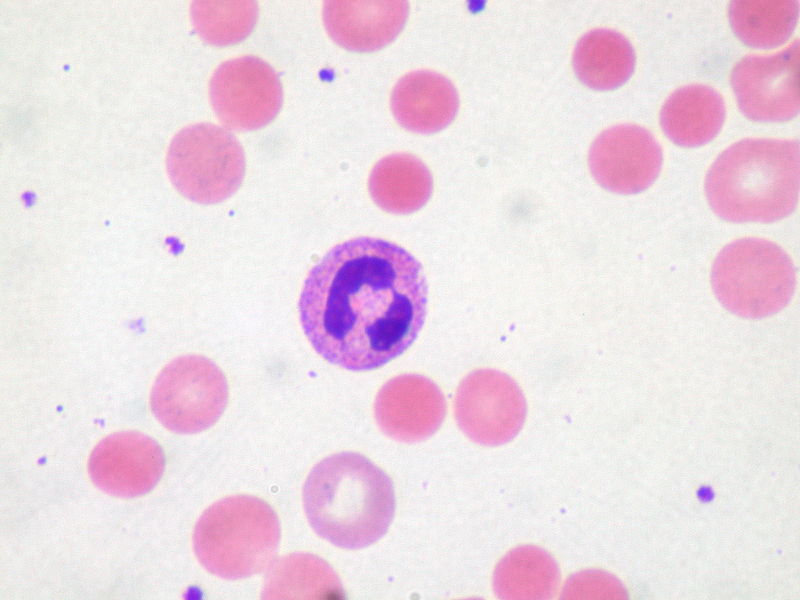Playlist
Show Playlist
Hide Playlist
Warm Autoimmune Hemolytic Anemia (WAIHA): Clinical Features
-
Slides Autoimmune Hemolytic Anemia.pdf
-
Reference List Pathology.pdf
-
Download Lecture Overview
00:00 Warm type autoimmune hemolytic anemia. Clinical features. 00:02 Signs and symptoms of anemia. What does that mean? Especially hemolytic. 00:06 Sure. Fatigue and tiredness, anemia. In addition, what else are you gonna find with warm? What kind of hemolysis? Extravascular. So therefore jaundice this and maybe pigment stones. 00:18 What kind of test? Direct Coomb's test. What is it going to identify? Good. 00:23 An antibody bound to an RBC. That complex. 00:28 What's this called that you use to bring about agglutination? Coomb's reagent. Here it is. 00:33 The anti-IgG immunoglobulin. What temperature might you wanna use this at? At least 37 degree Celcius. Why? Warm. 00:42 If the cells agglutinate, this indicates the presence of IgG coating the RBC membrane. 00:48 Do you see how easy it is once you lay down the foundation? So everything that we do here, absolute clinical significance. 00:53 But, you know, we have to have a discussion first so that all these comes to light.
About the Lecture
The lecture Warm Autoimmune Hemolytic Anemia (WAIHA): Clinical Features by Carlo Raj, MD is from the course Hemolytic Anemia – Red Blood Cell Pathology (RBC).
Included Quiz Questions
Which of the following conditions has a histological picture similar to that of the warm type of autoimmune hemolytic anemia?
- Hereditary spherocytosis
- Plasmacytoma
- Thalassemia
- Methemoglobinemia
- G6PD deficiency
What is the preferred temperature to use for a direct Coombs test to diagnose warm autoimmune hemolytic anemia?
- 37°C (98.6°F)
- 29°C (84.2°F)
- 30°C (86.0°F)
- 34°C (93.2°F)
- 35°C (95.0°F)
Which of the following clinical features may least likely be observed in warm autoimmune hemolytic anemia?
- Patients may present with increased calcium levels.
- Patients may present with low platelets.
- Patients may present with fatigue.
- Patients may present with jaundice.
- Patients may present with a low hematocrit.
Customer reviews
5,0 of 5 stars
| 5 Stars |
|
5 |
| 4 Stars |
|
0 |
| 3 Stars |
|
0 |
| 2 Stars |
|
0 |
| 1 Star |
|
0 |




